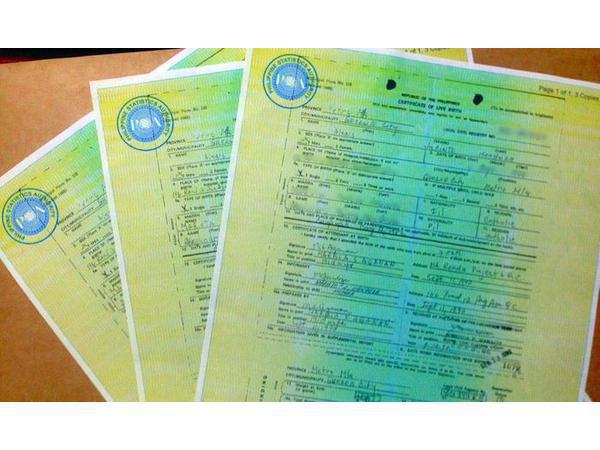Step by Step: How to Start Your Business in Cebu
We all know the bureaucratic delays in the Philippine Government. Unfortunately, registering a business also takes a long time if you don’t know the process or if you have no clue on what to do.There are some business registration companies who charge you bucketloads of pesos just so they will handle everything that is necessary to register your business.
Let me give you the low-down:
1. First you need to go the Securities and Exchange Commission (SEC).
Their address is at SEC Bldg., Englis V. Rama Ave., Cebu City and you may call them at (032) 253-6987, 253-7221, 253-5337. The current acting director is Lindeza R. Rogero-Gavino.
You can verify the company name online for free. Once you see a company name that has not been taken, you can reserve it for 30 days for P40. SEC will have to approve it though. You can also reserve the name for up to 120 days for P120.
2. Paid-Up Capital
You need to deposit paid-up capital in an authorized agent. The paid up capital must be 6.25% of the authorized capital stock of your company and must not be less than P5,000.
3. You need a notary public to notarize articles of incorporation and treasurer’s affidavit.
4. After steps 2 and 3, you can register with SEC provided that the name you reserved is still available. You need to go to SEC to register and bring the following:
a. Company name verification slip;
b. Articles of incorporation (notarized) and by-laws;
c. Treasurer's affidavit (notarized);
d. Statement of assets and liabilities;
e. Bank certificate of deposit of the paid-in capital;
f. Authority to verify the bank account;
g. Registration data sheet with particulars on directors, officers, stockholders, and so forth;
h. Written undertaking to comply with SEC reporting requirements (notarized); and
i. Written undertaking to change corporate name (notarized).
5. Get a business permit application form and community tax certificate (cedula) from the Cebu City Hall representative at the Department of Trade and Industry (DTI)’s National Economic Research and Business Action Center (NERBAC).
6. The notary public has to notarize the business permit application obtained in step 4.
7. Get a Business Tax Payment Payment Certificate (BTPC) from the Cebu City Hall representative at DTI NERBAC
8. Your company can already operate once the BTPC is issued. However, you have 60 days to comply with other requirements such as:
a. Barangay clearance
b. SSS
c. PhilHealth
d. BIR Registration
e. Other required inspections and certifications.
9. Get special books of account
10. Apply for Certificate of Registration (COR) and Taxpayer Identification Number (TIN) at the BIR. You need the following:
a. Barangay clearance;
b. Mayor's permit; and
c. Copy of its SEC registration.
The annual registration fee is P500. You will receive a certificate of registration after that (BIR Form No. 2303)
11. Pay the registration fee and documentary stamp taxes (DST) at the AAB
The company must pay DST on the original issuance of shares of stock. The rate is P1 on each P200 or a fractional part thereof, of the par value of such shares of stock. You will receive a COR once the DSTs are paid.
12. Obtain the authority to print receipts and invoices from the BIR
To obtain the authority to print receipts and invoices from the BIR, the company must submit the following documents to the Revenue District Office (RDO):
a. Duly completed application for authority to print receipts and invoices (BIR Form No. 1906);
b. Job order;
c. Final and clear sample of receipts and invoices (machine-printed);
d. Application for registration (BIR Form No. 1903); and
e. Proof of payment of annual registration fee (BIR Form No. 0605).
13. Print receipts and invoices at the print shops
14. Books of accounts and Printer’s Certificate of Delivery (PCD) stamped by the BIR
After the printing of receipts and invoices, the printer issues a Printer’s Certificate of Delivery of Receipts and Invoices (PCD) to the company, which must submit this to the appropriate BIR RDO (i.e., the RDO which has jurisdiction over the company’s principal place of business) for registration and stamping within thirty (30) days from issuance along with:
a. All required books of accounts;
b. VAT registration certificate;
c. SEC registration;
d. BIR Form W-5;
e. Certified photocopy of the ATP; and
f. Notarized taxpayer-user’s sworn statement enumerating the responsibilities and commitments of the taxpayer-user.
15. Register with the SSS. The requirements are:
a. Employer registration form (Form R-1);
b. Employment report (Form R-1A);
c. List of employees, specifying their birth dates, positions, monthly salary and date of employment; and
d. Articles of incorporation, by-laws and SEC registration.
After submission of the required documents, the SSS employer and employee numbers will be released. The employees may attend an SSS training seminar after registration so that each member is aware of their rights and obligations.
16. Register with PhilHealth and bring the following:
a. Employer data record (Form ER1);
b. Report of employee-members (Form ER2);
c. SEC registration;
d. BIR registration; and
e. Copy of business permit.
You will only have proof of membership until PhilHealth releases the employer and employee numbers within three months.









